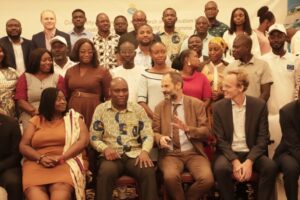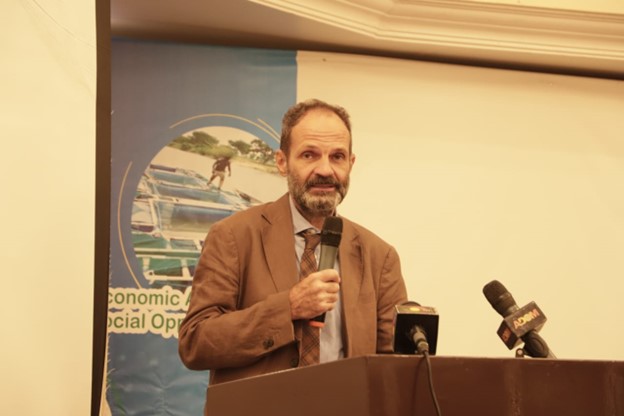The CSO-RISE programme has exceeded expections, positively impacting over 160,000 beneficiaries in Ghana, Massimo Mina, Head-Cooperation, European Union Delegation to Ghana, has revealed.
Notably, 70 percent of the beneficiaries were women – making it a remarkable stride toward gender inclusivity.
This collaborative endeavour between the European Union and government of Ghana – initiated in 2018 with an investment of €9million – aimed to enhance the resilience and inclusivity of civil society organisations and communities, while promoting sustainable solutions to pressing economic and social challenges and reinforcing the sustainable management of ecosystems.
In his keynote address at the closing ceremony in Accra, Mr. Mina emphasised the importance of the programme’s partnership with the government of Ghana, particularly the Ministry of Finance, as a pivotal factor in coordinating this life-changing initiative.
“The programme focused on harnessing Ghana’s rich agricultural potential, particularly in the ginger value chain, fisheries, cashew and beekeeping sectors. Its success remains a testament to its careful design and commitment to creating a more resilient and sustainable future for Ghana through sustainable agricultural practices,” he said.

Highlighting some of the programme’s key achievements, Mr. Mina mentioned that under the Climate-Resilient Agriculture programme, over 12,000 smallholder farmers and women’s groups were empowered to adopt climate-resilient agricultural practices. An impressive 89 percent of these farmers embraced sustainable techniques such as composting, improved seeds, woodlots, tree-crop-livestock integration and agroforestry, securing livelihoods and protecting the environment.
Under the empowering women project, the CSO-RISE programme distributed 35,000 high-yielding cashew seedlings and 35,000 mango seedlings to women’s groups; meanwhile, 20,000 individuals – including 50 percent women – benefitted from climate-friendly bee-keeping practices. This support enhanced women’s economic well-being, covering their families’ educational and healthcare needs.
With the Social Protection project, the programme assisted 1,669 beneficiaries with obtaining access to pension schemes and the National Health Insurance Scheme (SSNIT), providing financial security and healthcare access to those with limited income.
Under the Value Chains segment, support for the ginger and fish value chains benefitted 32,000 people – and the programme extended its support to 750 individuals with disabilities, enhancing their participation in these sectors. Furthermore, new climate-friendly ovens for fish-smoking improved the lives of over 20,000 women fishmongers in several regions, creating better livelihoods for families.
With its Academia Support project, the programme supported five graduate students from the University of Cape Coast’s Centre for Coastal Management with advancing the sector through research activities.
As the CSO-RISE programme comes to a close, Mr. Mina emphasised the European Union’s continued commitment to Ghana’s sustainable agriculture and rural development. Beyond CSO-RISE, the EU-Ghana Agriculture Programme (EU-GAP) – with an investment of €132million – reflects the EU’s dedication to inclusive growth and reducing social inequalities through sustainable agricultural practices.
Mr. Mina revealed that more support is on the way, as the Ministry of Finance and Team Europe partners are set to participate in a signature ceremony for two Financing Agreements, which will unlock additional support for agriculture, agribusiness and other cooperation areas.










